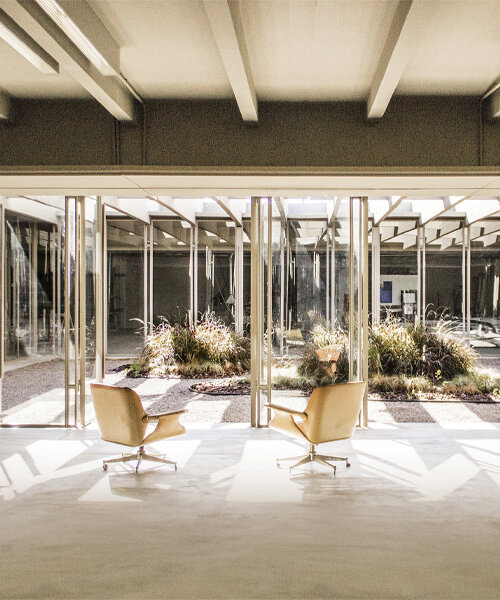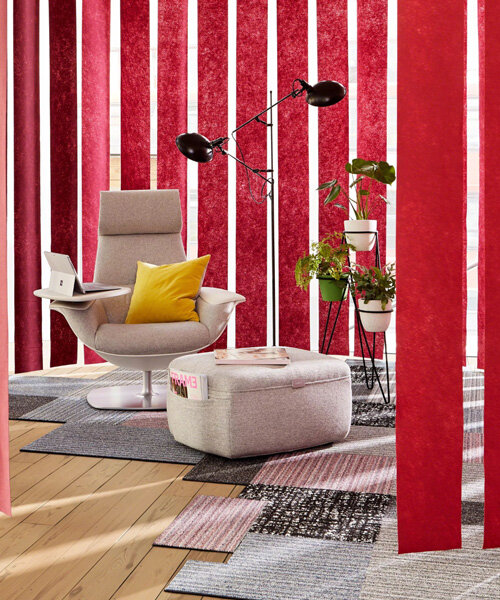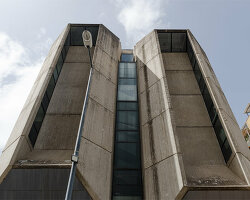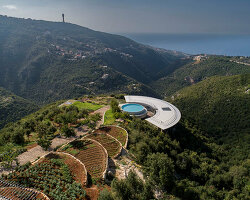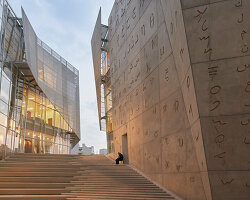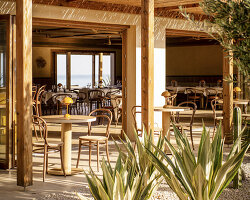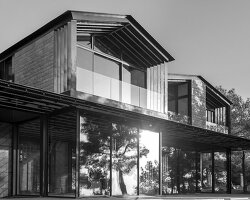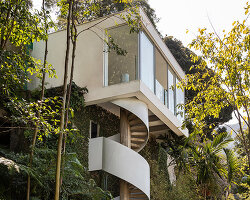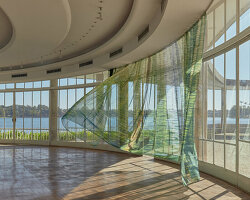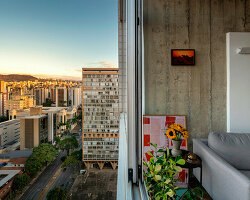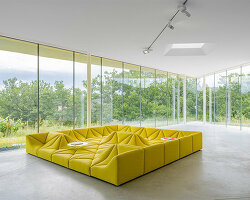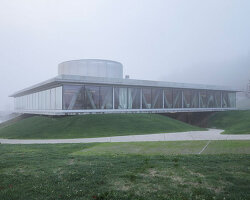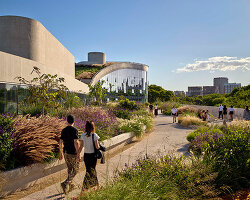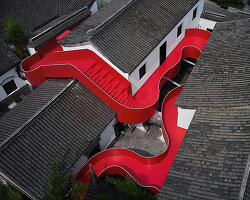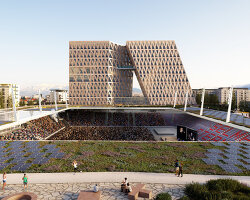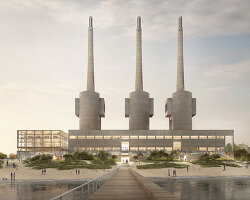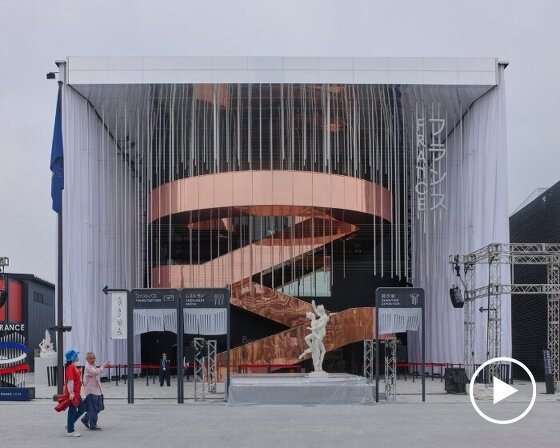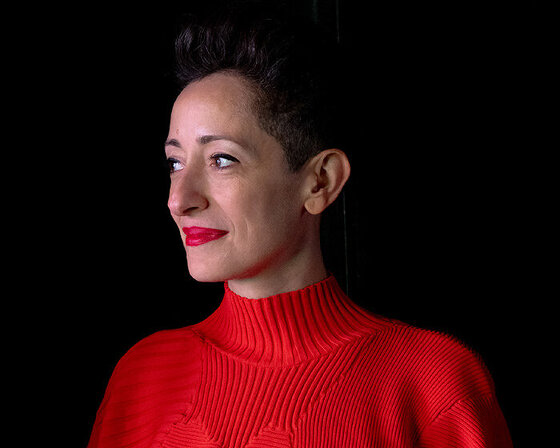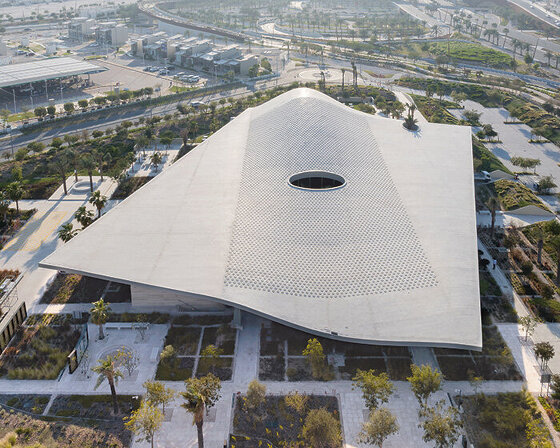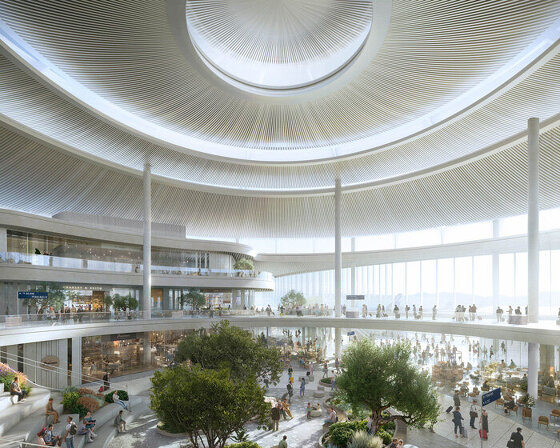award-winning renovation of niemeyer guest house in tripoli
Located in Tripoli, Lebanon, this renovated guest house stands just inside an entrance to the Rachid Karami International Fair, designed by Oscar Niemeyer between 1964 and 1975. Although incomplete and derelict since the Lebanese civil war halted construction, the 10-hectare site is one of the Middle East’s finest examples of Modernist architecture. After previous grandiose schemes envisioning its revival fell flat, the recent rehabilitation of one of its structures carried out by local practice East Architecture Studio offers a model of how a building-by-building approach could bring the fair back to life.
The renovation came about when a branch of the French Development Agency was seeking a home for Minjara, an initiative that aims to reinvigorate Tripoli’s famed but latterly declining wood industry. To do so, it provides a platform where its carpenters can meet up, share and learn skills, access state-of-the-art tools and a materials library, and meet designers from Beirut.
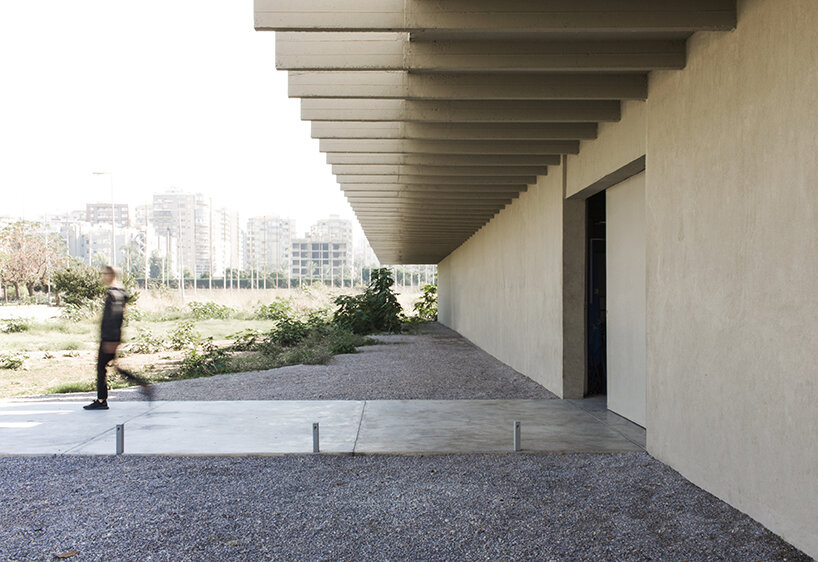 entrance walkway | image © East Architecture Studio
entrance walkway | image © East Architecture Studio
More importantly, the project received the 2022 Aga Khan Award for Architecture, along with five other international works. ‘The renovation of the Niemeyer Guest House is an inspiring tale of architecture’s capacity for repair at a time of dizzying, entangled crisis around the world, and in Lebanon in particular, as the country faces unprecedented political, socio-economic and environmental collapse. […] The project has been carried out with great precision, its high quality revealing the exhaustive research the architects undertook. A sensitive understanding of the fair’s specific architectural language is carefully deployed to revive this important architectural and urban heritage,’ writes the Aga Khan Award jury.
‘In this carefully crafted space, reverence for the ‘hand’ is perpetuated through the proposed program: an active wood workshop sustaining small-scale carpentry and reviving the city’s history of craft. The project regenerates much-needed micro-economies and advocates inclusiveness, inviting the surrounding community into its heart. It reveals how paramount it is today to consider architectural rehabilitation and socio-economic revival as an indivisible whole.’
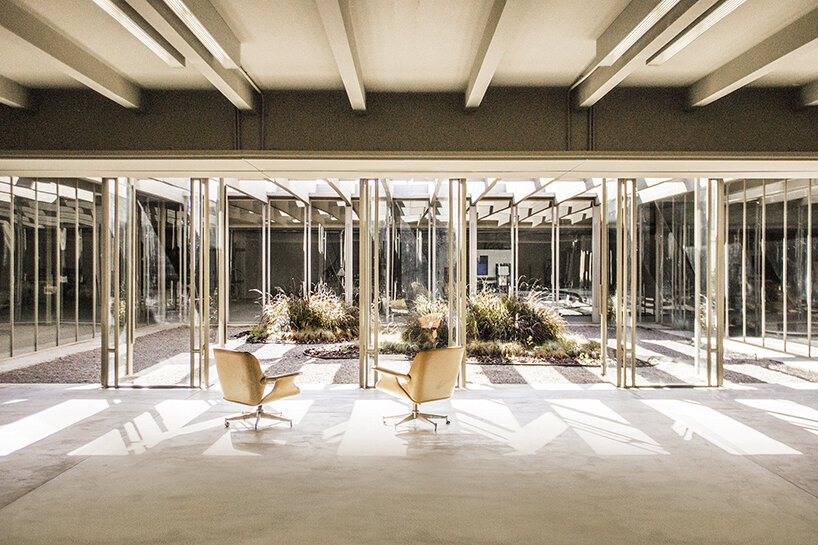 glass partition | image © East Architecture Studio
glass partition | image © East Architecture Studio
carrying out light and reversible interventions
An introverted, windowless structure from the outside, the single-story Niemeyer Guest House is flooded with light within via a central atrium and two courtyards. Its structural system comprises load-bearing walls and a concrete diagrid of deep beams covering the atrium to create changing shade throughout the day.
Given the lack of archival material, the team at East Architecture Studio extensively studied Niemeyer’s completed work elsewhere to build up a sense of what he intended. Their interventions tread lightly and are almost entirely reversible, notably including operable glazed partitions, a durable grey paint finish on all but the floor surfaces, and a waterproof, lightweight concrete slab roof, the original roof being no longer watertight. In addition, an electrical system was integrated into a new concrete floor and passed, concealed, along the main columns into ceiling tracks.
The main ground-floor area now hosts a reception, materials library, exhibition and meeting spaces, administrative zone, toilets, carpentry workshop, assembly/think-tank space, machinery storage area, and service room for dust-extracting machinery that transforms wood dust into compact bricks. No new walls were added aside from the glass partitions, and all furniture is free-standing. The architects have thus preserved the building’s structural, material and spatial qualities while successfully meeting users’ needs.
‘It is our hope that this award can celebrate the collaborative work behind this project and become the first step towards exemplary, careful rehabilitation and adaptive reuse for the rest of the fair site,‘ concludes the jury.
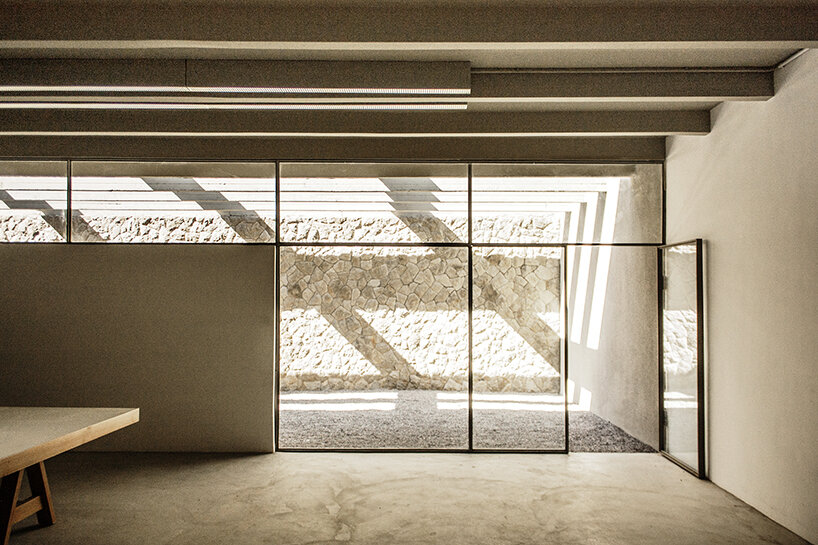 lateral space | image © East Architecture Studio
lateral space | image © East Architecture Studio
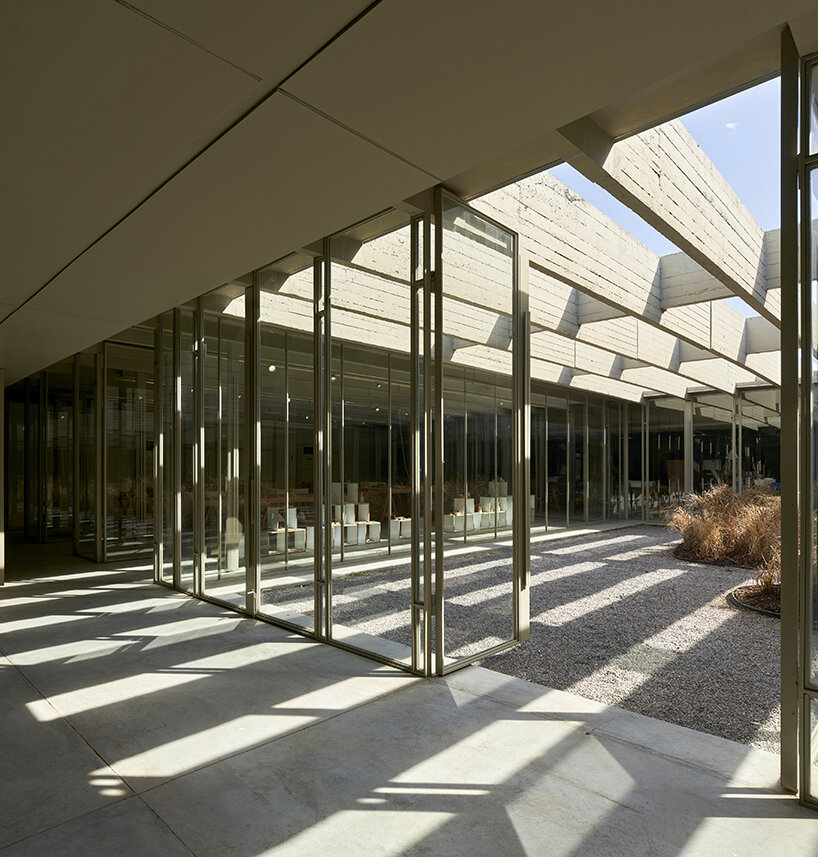
central courtyard | image © Aga Khan Trust for Culture, Cemal Emden
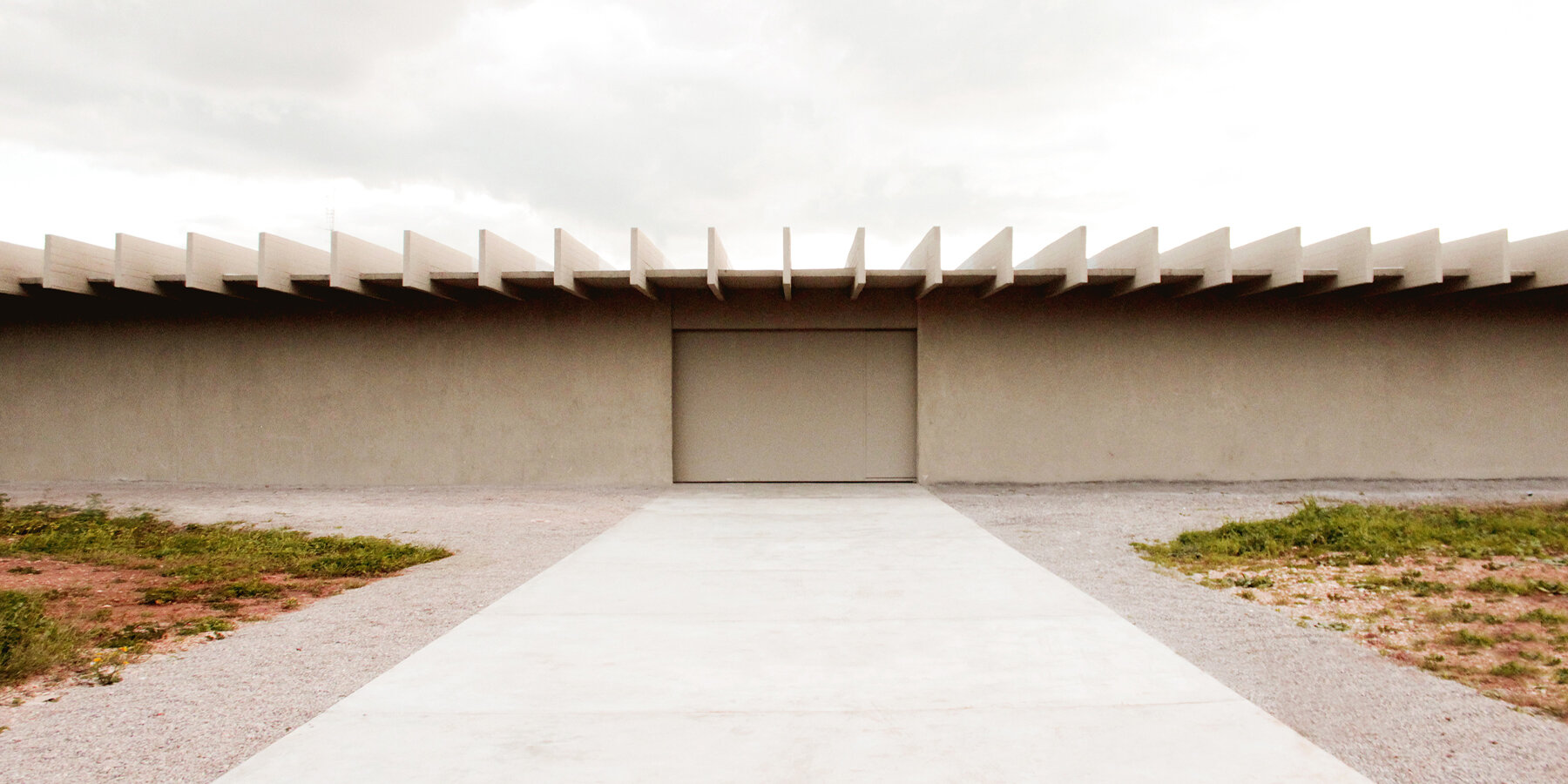
entrance walkway | image © East Architecture Studio
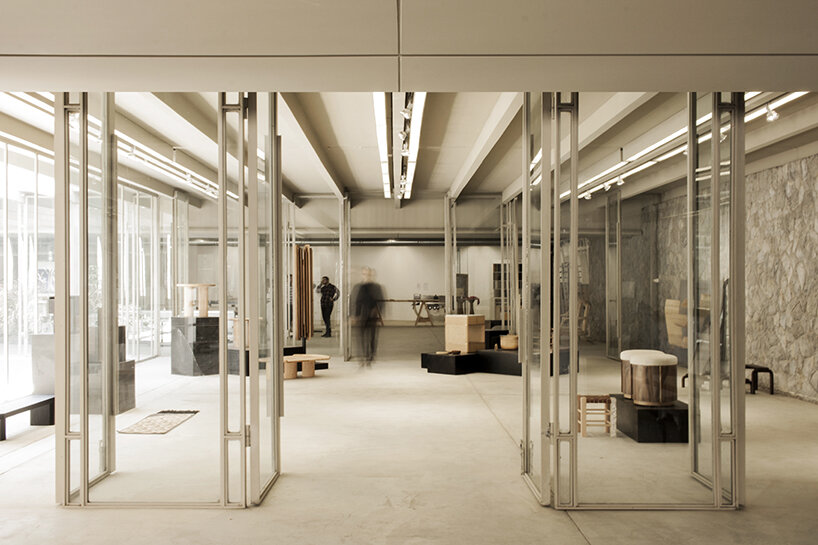 exhibition space | image © East Architecture Studio
exhibition space | image © East Architecture Studio
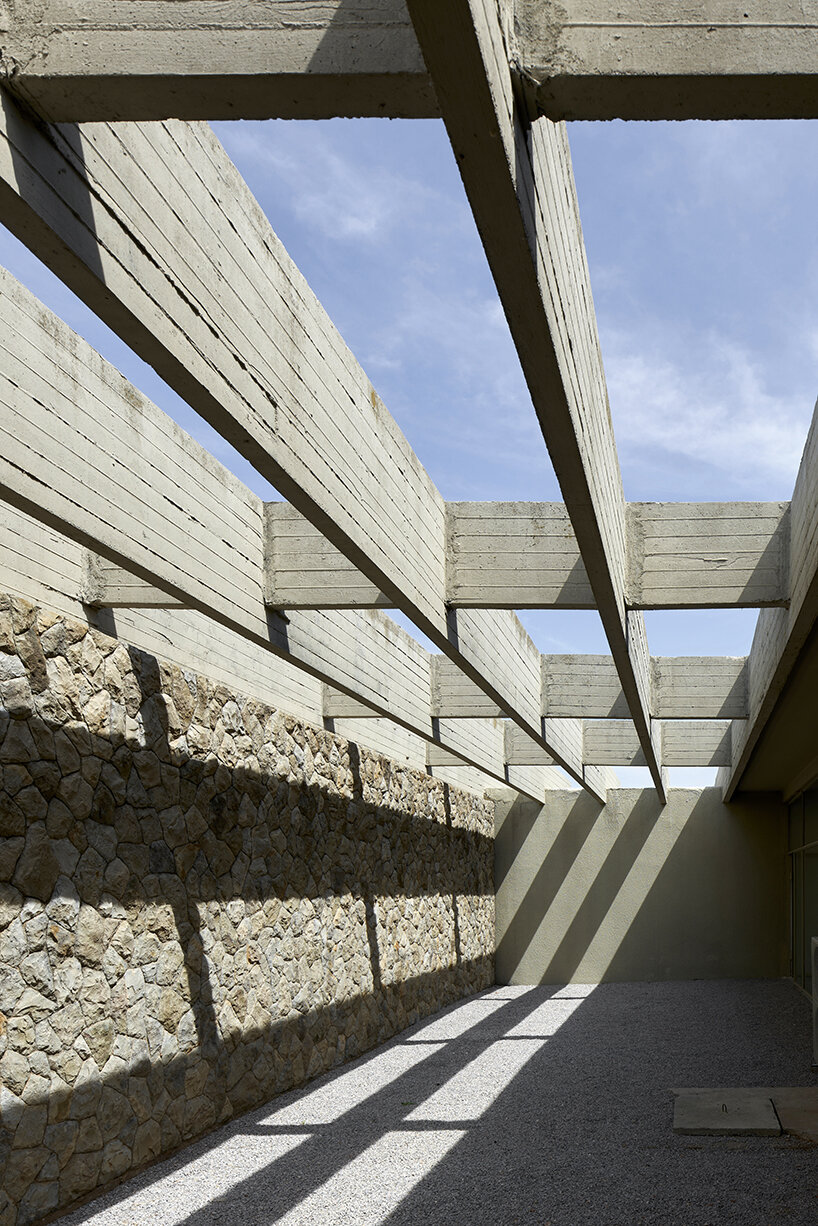 lateral courtyard | image © Aga Khan Trust for Culture, Cemal Emden
lateral courtyard | image © Aga Khan Trust for Culture, Cemal Emden
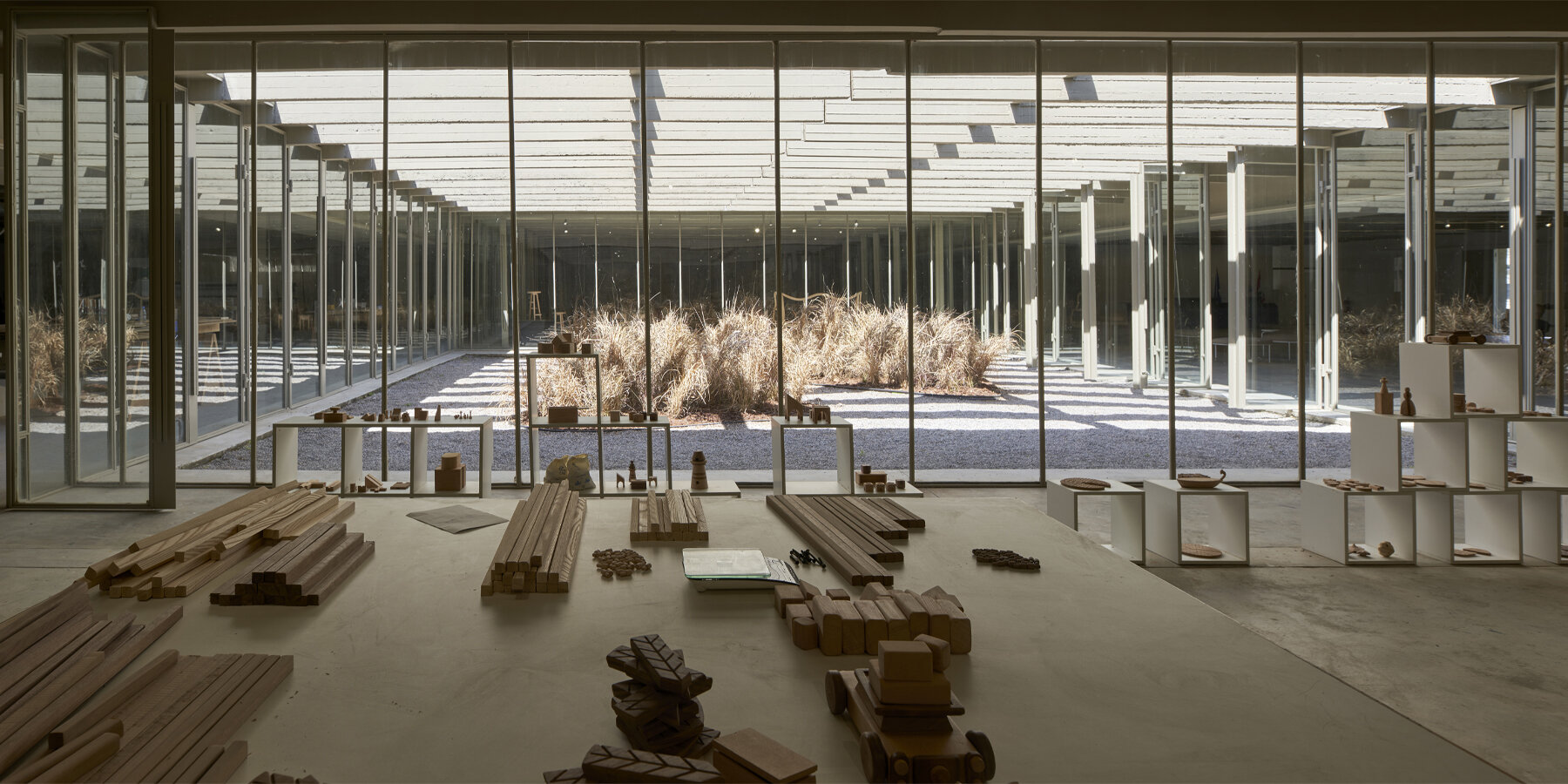
think tank space | image © Aga Khan Trust for Culture, Cemal Emden
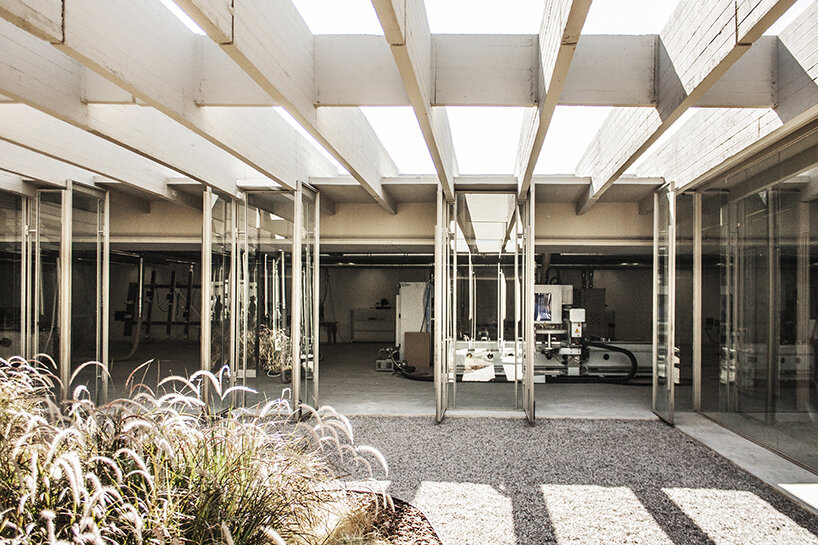
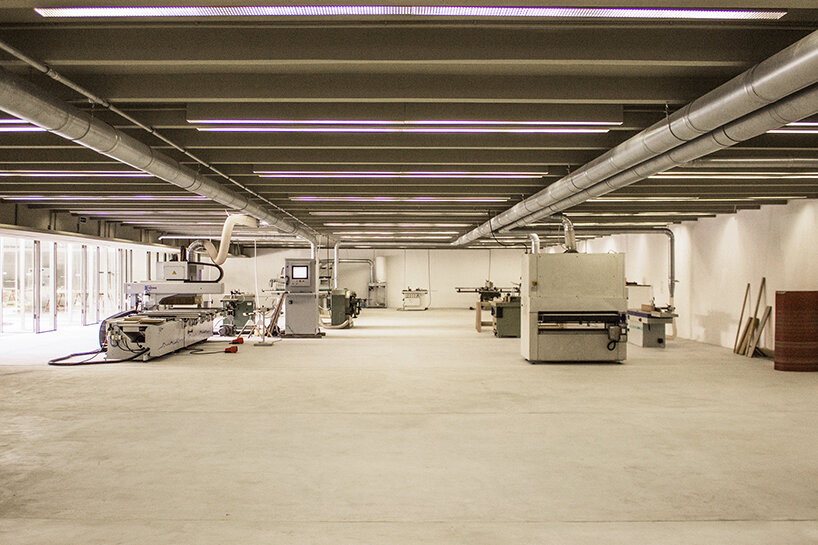
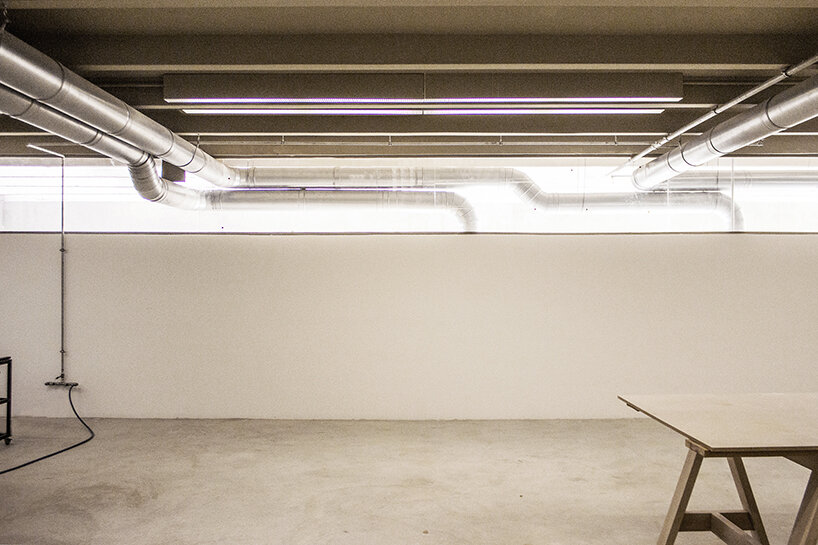
project info:
name: Renovation of Niemeyer Guest House
location: Tripoli, Lebanon
rehabilitated area: 1,917 sqm
site area: 3,200 sqm
commission date: February 2018
design dates: February – April 2018
construction dates: June – October 2018
occupancy date: November 2018
client: Expertise France
client team: Julien Schmitt (former team leader), Frederic Anquetil (special wood manufacturing consultant)
project advisor and client partner: Association of Lebanese Industrialists / Danny Abboud
architecture: East Architecture Studio
lead architects: Nicolas Fayad, Charles Kettaneh
project architects: Lucile Abi Chebl, Elie Geha
junior architects: Lina Hammoud, Zeina Chamseddine
project operation: René Moawad Foundation with Expertise France through European Union funding
project manager: Joya Douaihy
platform manager: Nour Sawaya
production manager: Valery Haykal
sales manager: Diva Chbeir
designer: Joanna Ghosn
field quality coordinator: Ehab Rajbieh
equipment & operation manager: Ali Boksmati
equipment & operation manager’s assistant: Raafat Nachabe
site supervision: TECC Consulting / Ziad Yazbeck
site construction: Ghazzaoui & Taleb Contracting / Mohammad Abdi, Alaa Housseiny, Moustafa Saad, Rayan Taleb, Aref Zaid | Topcat Industries / Dany Abboud
